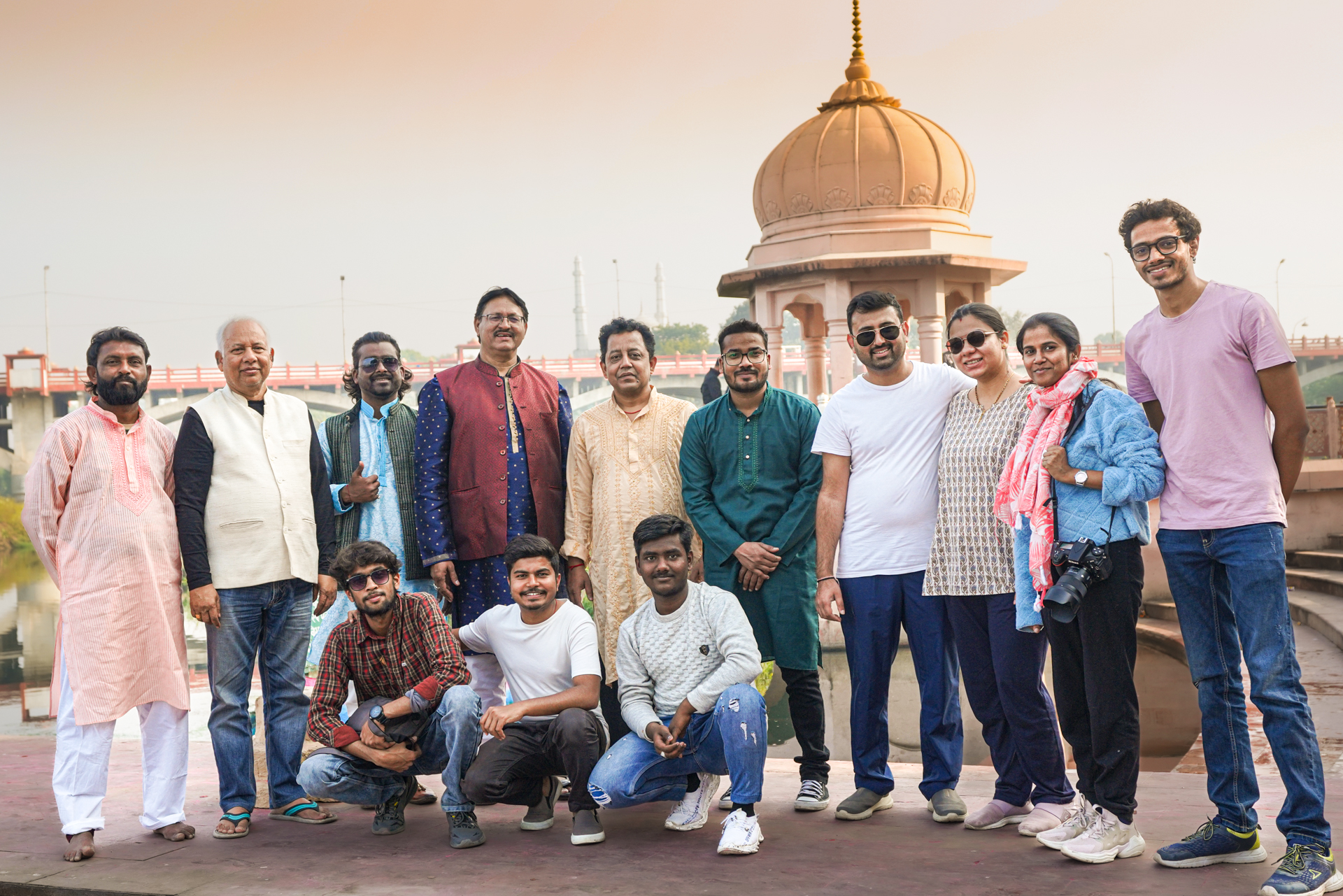
The beautiful blend of Urdu poetry and Hindustani music
Ghazal is a semi-classical genre well-known for its highbrow, sophisticated poetry and melodious tunes.
Urdu is a language native to the Indian subcontinent, which took birth in medieval times under the patronage of Islamic rulers. Persian was the preferred language of the courts, and the ordinary people spoke various Sanskrit-derived languages, which still survive. With time, as the ruling class got to interact more with the ordinary people, and the commoners also started learning Persian to improve their social status and economic opportunities, it led to a unique blend of Persian and Indian languages, what we know by the name Urdu today. Although the base phonology and grammar of the language are derived from Sanskrit, much of its vocabulary shows a generous influence of Persian and Arabic, which contributes to its beauty and elegance.
Poetry in Urdu also has a long history, which became popular during the Delhi Sultanate and Mughal rule. Poetry competitions, known as mushairas, were commonly held where poets would recite shers, and couplets which were witty and philosophical. These couplets also attracted musicians, who composed tunes derived from Classical Hindustani music and gave birth to a genre called Ghazal, which continues to be famous to this day.
Ghazal, though, is not a purely Indian invention. It traces its origin to the early Islamic Caliphates of Arabia. Ghazals were initially strongly associated with Sufi mystics who wrote metaphorical poetry about the Divine love and mercy of God. Still, it was presented in the vocabulary commonly associated with lovers and hedonistic lifestyles, such as the consumption of wine. It soon spread to Persia, where it modified and assimilated influences from other Persian poetry, and eventually travelled to the Indian Subcontinent with the rise of the early Islamic Sultanates. Ghazals were initially performed as part of Qawwalis, but later they took a more secular appearance and established themselves as an independent musical genre.
Ghazal is a poetic expression of love, pain, suffering, and the beauty of separation and suffering. It is written in a fixed meter and uses highly literary Urdu and Hindi, requiring proficient command over the languages to understand. Despite their highbrow nature, Ghazals remain immensely popular for their themes of unrequited love and the beauty of longing. They are also prominently featured in Bollywood films, usually denoting the characters’ and stories’ refinement and elegance. The tunes are based on Hindustani Raagas and involve Tabla, Harmonium and bow instruments like fiddle or Sarangi.
Iliyas Khan is a well-known Ghazal artist from Lucknow who has also sung for films. Not only does he sing them, but he also composes his tunes for existing poems. For instance, he has composed the song Khud ko itna bhi mat bachaya kar, baarishein hoti hai toh bheeg jaaya kar, a Ghazal, which was written by the famous poet Dr Bashir Badr. The song talks about keeping optimism and being open to the many possibilities of life, to be open to love and friendship despite the difficulties and disappointments it brings. Iliyas Khan took inspiration from Raag Durga, a Hindustani Classical melody, to compose the song.
His fellow musicians are also well-versed in Classical music. The Tabla player is also called Iliyas Khan and belongs to the 9th generation of musicians in the Lucknow gharana. He learnt from his elder brother Ilmas Khan and has performed internationally on various stages. He has taught Tabla for three years in Mexico and is a veteran performer. Zeeshan plays the Sarangi and belongs to the 17th generation of Sonipat-Panipat gharana. He is the grandson of the famous Sarangi player, Ustad Vazir Husain Khan, from whom he also learnt before also learning from Ustad Roshan Ali Khan in Kolkata. Iliyas Khan’s student Jafar Ansari plays the guitar. He is also a singer and has completed his master’s degree in Hindustani music.
Iliyas Khan has a taste for poetry and carefully chooses the songs he sings. Kubaku fail gayi baat shanasaayi ki is a Ghazal written by Parveen Shakhir, a Pakistani poet who is one of the few female Ghazal poets. She is credited with bringing a uniquely female perspective and voice to an otherwise male-dominated genre, and she popularised the feminine gender word for “lover”. Iliyas also sang another Ghazal whose music he composed himself – Hum apni ashiqui ka wo zamana kaise bhool paayenge, written by Syyed Altaf Ali Altaf.
Lastly, Dil Lakhnavi is a famous poet from Lucknow who has also written songs for Bollywood films. His Ghazal, Ghata udhi udhi, ye Mausam suhana was also sung by Iliyas Khan. Ghazals remain popular among the younger generation because of their lovelorn themes of longing and separation. They express unrequited love and praise it highly. Ghazals are also the most popular representation of the Urdu language in India. Lucknow has always been a major centre for music and literature, particularly Urdu literature, and Iliyas Khan is one of the distinguished artists from the city who continue to keep the tradition and culture of the city alive in all its glory.
